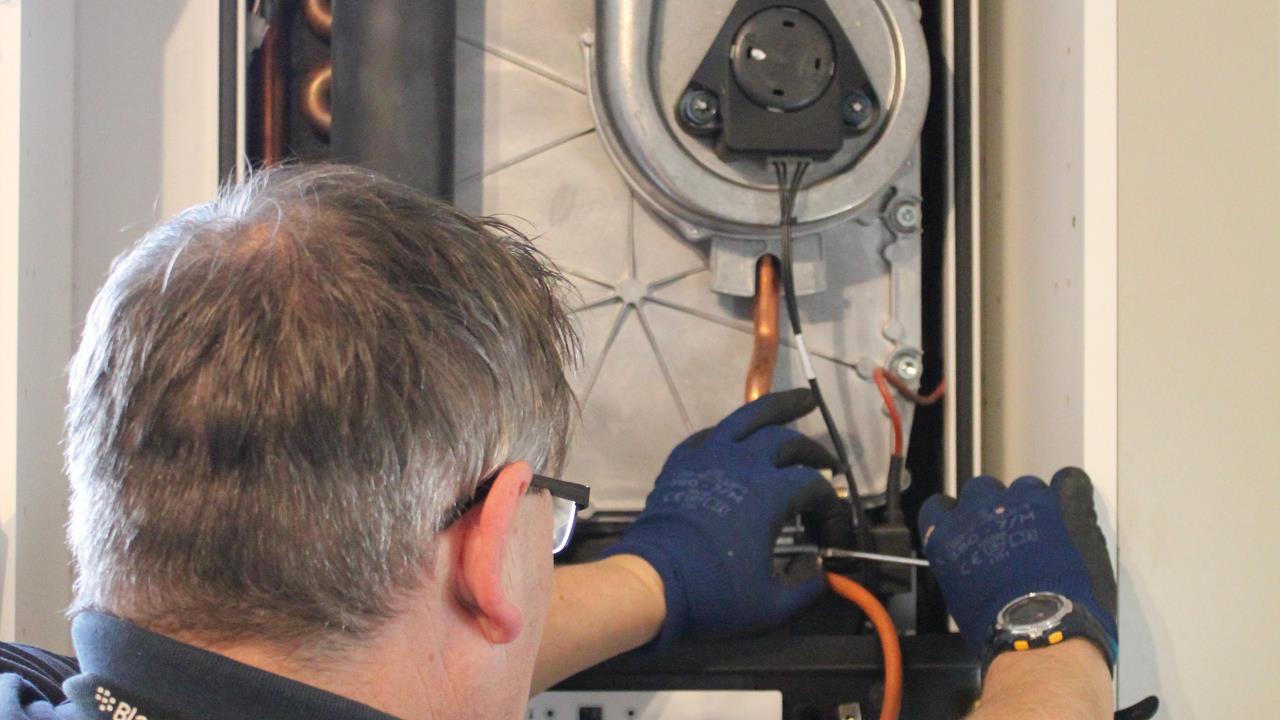


Stephen Zouch, Managing Director at Intergas UK, explains the advantages of servicing a boiler based on hours of operational use, instead of on a yearly basis.
To validate the warranty and to ensure the boiler is regularly maintained, manufacturers have always had an annual service written in to their terms and conditions.
However, this 12-month service interval is purely arbitrary; if you’re out at work all week, you won’t be making the same demands on your boiler as a family with young children who are at home during the day.
All of us in the industry have recognised the inequity of this system, and that it would be far more logical to follow the motor industry’s example, where a vehicle is serviced after a specified number of miles driven but, as there was no way to actually gauge how often the boiler was being used, we kept doing what we had always done.
But that all began to change in 2014, shortly after I joined Intergas, when we launched our first generation of smart boilers, the Eco RF range, in the UK. What made these boilers smart was the embedded RF technology that enabled two-way communication between boiler and installer.
The installer was now able to track boiler performance in real time, change parameter settings where appropriate and prevent a problem from developing, and nearly all of this could be done remotely from a mobile device. It became clear that this technology was capable of far more and, for the past seven years, the R&D team in the Netherlands (where Intergas RF technology has been in use since 2012) has been examining the data to see how the quality of customer care and boiler efficiency could be improved.
During this process the team was able to isolate the optimum time period to leave between boiler services which is why, from 1 May 2019, all Eco RF boilers will only need to be serviced after 1,700 hours of operational use rather than every 12 months.
The RF technology embedded in the boiler, together with Intergas’ LAN Gateway, will track boiler performance remotely as before, but now the boiler will send an alert when it’s approaching 1,700 hours.
We’ve developed a Service Dashboard to ensure all this information is easy to access and analyse, and its easy-to-read screens give the installer a detailed view, in real time, of all its parameter settings, and the facility to support the customer remotely. There’s a free app too, for on the go usage.
If the customer doesn’t want to use the monitoring and maintenance technology to carry out the service at 1,700 hour intervals, then the boiler will need to be serviced annually to ensure the warranty remains valid.
Once market uptake has been assessed, our new low NOx boilers, the Xclusive and Xtreme, will also become eligible for a 1,700 hour service.
Not only is this a fundamental change to the way boilers are maintained, it will cut down on unnecessary servicing while improving installers’ opportunities to increase their business. By monitoring customers’ boilers regularly, being able to update them on potential issues and introduce new products or services where appropriate, installers are far more connected with their customer.
This level of interaction is not possible when your only customer contact is arranging the annual service or when there’s a problem. Customers will pay for this increased level of support – in fact many Eco RF owners already have monthly monitoring and maintenance plans, as well as an annual service agreement (except that the service agreement won’t be called ‘annual’ now).
The Intergas servicing hours protocol however does not apply to the private rented sector, as landlords are legally obliged to have a Gas Safe engineer carry out a gas safety check, commonly known as a CP12, on the boilers in their properties once every 12 months.
If you'd like to keep up-to-date with the latest developments in the heating and plumbing industry, why not subscribe to our weekly newsletters? Just click the button below and you can ensure all the latest industry news and new product information lands in your inbox every week.